International President’s emphasis on greater Council presence in the South East Asian RegionOn a visit to Australia in 2004, International President of the Council of Christians and Jews, Fr. Professor John Pawlikowksi (pictured) took the bold step of envisioning an ICCJ global conference being held for the first time in the organisation’s history outside Europe or the Americas. The concept developed into a virtual challenge to the Australian and New Zealand Councils to take on the organising role which they accepted. The most important priority in tackling such a role turned their attention to the matter of finance. With the exception of a comparatively small input from the international body, the entire costs of such a major undertaking is required to be raised by the host country.
We are naturally delighted that the 2007 conference will be held in Sydney”, Fr. Pawlikowski said. Women's Conference to precede main conferenceA 3-day Women's Conference is being convened in Sydney which will take place from July 5 at the same venue as the main conference. Full details, registration information and program contents can be obtained from its organiser, Sr. Marianne Dacy by e-mail from: |
Rudd invited to keynote international conference
Federal Opposition Leader, Kevin Rudd has been invited by the Australian Council to present the keynote address on the opening day of the International conference in Sydney in July. Rudd’s office has indicated that this will be able to be confirmed when his schedule for later this year is confirmed.
To be held in the Eric Caspary Centre on the campus of the University of New South Wales from July 8 to 11, the conference will be co-hosted by the Australian and New Zealand Councils.
A comprehensive program of panels and workshops as well as visits to sites of interest to participants is currently being finalised while acceptances are being received from a wide range of leading Australian and international speakers, including Christian and
Jewish community leaders and representatives of the Muslim community.
Gubernatorial opening
A particular emphasis of the conference will be on reconciliation and environmental issues, participation in which will involve representatives of the Aboriginal people. (see Outline of Conference Program: Page 2) Officially opening of the first ever International Council global conference to be held outside Europe or the Americas will be by the Governor of New South Wales, HE Professor Marie Bashir, AC
who also acts as patron of the New South Wales Council of Christians and Jews.
Conference Registration Forms will be ready for distribution soon and this issue of SCENE encloses a special notice for anyone wishing to be listed ahead of time to be sent a form.
Emphasis on youth
Among visits and special events augmenting the conference program are a Civic Reception by the Lord Mayor of Sydney and visits to the Sydney Jewish Museum, Aboriginal Catholic Centre at La Perouse, Sydney's Great Synagogue and the Auburn Mosque.
For overseas and interstate participants special post conference tours are being arranged outside Sydney.
A particular emphasis also will be placed during the conference program on youth affairs.
A contingent of New Zealand students is being hosted by the NZ Council. It is expected that they will be augmented by a number of youth representatives from Australia.
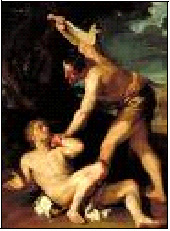 Cain and Abel:
Cain and Abel:
Reinterpreting the Story to Facilitate Jewish-Christian Understanding
by Dorothy Levinson
Now Abel was a keeper of flocks, and Cain was a tiller of the soil. In the course of time, Cain brought an offering to the Lord of the produce of the soil. Abel also brought the finest of his firstlings of his flock. The Lord turned to Abel and his offering, but to Cain and his offering he did not turn. … Cain said to his brother Abel, "Let us go outside," and when they were in the field Cain, filled with terrible anger toward his brother, prepared to strike Abel.
And then something extraordinary: Abel then turned to his brother saying, "The ways of Adonai are beyond our understanding, but they cannot be meant to sow dissent between us. Let us not allow this to destroy us, but rather let us multiply our offerings. My flocks shall eat of fodder from your land and in turn provide richness to your soil. And then we shall bring our gifts, more bounteous than ever, to our Lord."
And the Lord seeing this said unto Cain, "Why did you not slay your brother?" And Cain replied, "I am his keeper as he is mine."
And the Lord smiled upon the brothers saying, "I have tested you as I will test your descendants Abram and Job and the followers of your descendant Jesus. You will now be fruitful and multiply into great peoples, different in your worship of me, but both beloved in my eyes, and I will cause my countenance to shine on you both and will watch over you.
The Cain and Abel story, as told in Genesis 4:1-12, can be understood as a tragic analogy of Jewish-Christian relations over most of the past two millennia. At the same time, the passage's unstated alternative — the vision of these brothers living together in harmony — represents our hope for the future. Both Jewish and Christian teachings, and the actions of courageous Christians and Jews in our time, support this alternative vision by offering a resounding "yes" to Cain's infamous question.
In Genesis, Cain murders his brother. Seven times in these verses, we are reminded that Cain and Abel are brothers. But it didn't have to end this way. While the name Cain, a play on words, means "a man brought from God," the name Abel (in Hebrew Havel) means "nothing." It is as if God were leaving a blank for humankind, with its free will, to fill in. The blank could be filled in with "Loving Brother and Partner," or the blank could be filled in with "Hated Brother for Whom I Am Not a Keeper."
There was another way, and the very alternative silently posed by this Scriptural passage is our sign of hope. If the story of the murder mirrors the reality of Jewish-Christian interaction over the past two thousand years, the path not taken represents a vision for such relations in the future. Cain and Abel could have lived together in peace and enriched the lives of one another. They could have brought solace and comfort to one another during times of distress. Their work and their worship might have been complementary, indeed synergistic. Crops and livestock are interdependent. Fodder grown on the land can nourish livestock; fertilizer from livestock can nourish crops.
In the same way Jewish and Christian communities have the potential to live together in peace and mutual respect while enriching one another through their differences. Complementarities abound:
- Hebrew Scripture is common to both religions.
- Jesus, to Christians the Son of God, was a Jew. The Last Supper took place at a Passover meal.
- Ritual linkages are abundant: The Chatzi Kaddish provided the structural foundation for the Lord's Prayer; the tithe, with its roots in Genesis and Deuteronomy, is a cherished precept The concept of repentance is important to both traditions. Yom Kippur in Judaism is analogous to the Catholic practice of Confession and, in Protestant services, to the Confession of Sin.
The concept of repentance is important to both traditions. Yom Kippur in Judaism is analogous to the Catholic practice of Confession and, in Protestant services, to the Confession of Sin.
But perhaps most importantly, the teachings and the scriptures of both Judaism and Christianity provide an unequivocal response to the dreadful question posed by Cain. After the murder, and when confronted by God, Cain offers that infamous question, "Am I my brother's keeper?"
Cain seems to imply that it is only God's responsibility to look after other humans. God does not reply directly, but God's answer is provided in the strongly affirmative response of the ethical traditions and teachings of both Judaism and Christianity.
The essence of the Torah, Hillel announced while standing on one foot, is "Love thy Neighbour as thyself" (Leviticus 19:18). The Christian equivalent may be Jesus' words, "Just as I have loved you, you also should love one another" (John 13:34). The response of both traditions, offered loudly and clearly to Cain's question is, "Yes, you are your brother's keeper."
And, most poignantly, God's answer comes to us in the acts of rachmones (compassion) and tzedakah (justice) carried out by individual Christians and Jews on behalf of one another. God answered when the Christian "Righteous of the Nations" — Raoul Wallenberg, the Christians of Le Chambon in France, Oscar Schindler, the people of Denmark — came to the aid of defenseless Jews during the Holocaust. God answered when Jews joined actively in the struggle for civil rights of African American Christians in the Southern United States, and in the freedom struggle of Black South Africans, also primarily Christians.
At this hopeful time in history, the Cain and Abel story could be utilised, perhaps in conjunction with Isaiah 2, to promote understanding and to constitute common ground between our peoples. The idea that God chose Abel's gifts over Cain's is not the essence of the story for us. Rather we can utilize the story to offer the following teachings to fellow Christians and Jews of our time: that while religious belief can provide depth, meaning and moral structure to life, differing religious beliefs and worship — beginning with Cain and Abel — have too often in history led to conflict and bloodshed;
- that if God was testing Cain, as God later tested patriarchs, prophets and disciples, Cain failed the test;
- that the essence of both Jewish and Christian teachings offers a condemnation of Cain's action;
- that another way was possible then and is possible now;
- that indeed both Judaism and Christianity offer the strongest possible answer to Cain's question — and that answer is affirmative; and that our vision of the future must embrace the hope of Jews and Christians living together in mutual respect, and, as pictured by Isaiah, climbing that mountain together on occasion to worship, side by side, their common God.
Dorothy Levinson is a 20-year-old from Marlboro, Vermont, is a junior at Tufts University, double-majoring in Community Health and History. Her prize-winning essay helped to fund her work in Tanzania identifying groups at risk of HIV-AIDS.
| Editorial
Australia needs to defend "a fair go" for all Australia is a nation known for its "Fair Go" motto. Unfortunately, the socio-politic instability occurring around the world has also reached our shores. The changes proposed to the Citizenship process would be beneficial to those dynamic individuals who are willing to learn Australian values and the English language in order to adapt to this country. However, passing such a test does not actually mean that an individual will integrate, just as it does not mean that every person who passes a driving test does not become a good driver. Nevertheless, sitting for a citizenship test will develop people’s understanding of Australia and her values much better than what they would learn on the streets. It is quite important though to evaluate people by taking into consideration the country of origin and their level of education. The tests should be prepared according to people’s country of origin, educational levels and age. Otherwise, we would be acting unjustly and unfairly towards some individuals who wish to become proud Australians. Changes to the citizenship rules have already begun in the US and UK following the terrorist attacks in New York and London. Regrettably, the media has caused serious misunderstandings regarding the changes. Many people believe that these changes are calculated measures to filter out those of the Muslim faith. It is imperative that governments make this issue and their implementation of the process crystal clear to remove any doubts. Previous events have also taught us the importance of accepting people from different cultures and faiths into our society and acting with the principle of one social body in mind. These kinds of changes to the citizenship laws also may also trigger polarity against religious symbols, dress codes and basic civic rights of people from different backgrounds. It is imperative for governments not to be reactionary in their legislation. It is imperative that Australia follows its unwritten rule to support a “fair go” and promote all types of efforts to bring society together, living in harmony through interaction in an open and informed community. Only in this way will we continue to encourage the development of a harmonious and diverse society that encourages mutual respect by removing all stereotypes and fears. hdm@idx.com.au |
Lutheran Media launches Red Boots website
The meaning of Christmas brought to life for children The meaning of Christmas was recently brought to life in a children’s animated film "Red Boots for Christmas", a heart-warming tale about love, community and what are the true gifts of Christmas. Using this popular film as a focus, Lutheran Media last year developed and launched an interactive website www.redboots.com.au where English speaking children around the world are invited to a world of games to play, movies to watch, songs to sing, E-cards and more. The site's main target audience is 3-8 year olds, though some activities may be enjoyed by older children. Teachers within the Lutheran Education system have been encouraged to use the site as an educational resource, according to a report by the Lutheran Media Ministry.
Canberra function shows “Three Faiths—One God”
An interfaith film presentation and discussion as part of the ACT’s 2007 Multicultural Festival drew an interested audience to Canberra’s Theo Notaras Multicultural Centre last month. The film, entitled ‘Three Faiths – One God’ was the second of such screenings presented in Canberra. A similar function last year at the National Museum, showing the film “Chasing God” attracted an audience of some 250 people. A lively discussion followed the screening of “Three Faiths, One God”.
Satirical Sydney news-paper heading highlights major reconciliation move
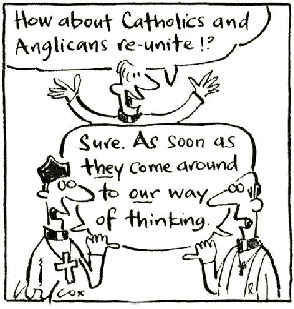 |
|
Illustration: Cathy Wilcox (SMH com.au) |
Last month's report in the Sydney Morning Herald on the proposal to reunite Anglicans with the Catholic Church under the leadership of the Pope was headed "The Pope an Anglican?"
The radical 42-page proposal, delivered by bishops from both churches suggests the churches could turn back the ecclesiastical clock, 450 years after Henry VIII separated from Rome in the Reformation.
Australian leaders from both churches dismissed the move as highly improbable although the Australian who heads the Catholic side of the project, Brisbane's Archbishop John Bathersby, said it was a significant step forward in an attempt at unity that began 35 years ago. Archbishop Bathersby, the co-chairman of the International Anglican-Roman Catholic Commission for Unity and Mission, said the relationship between the churches was closer than ever. The statement was leaked to The Times in London, but Archbishop Bathersby said a suggestion that an agreement was close was too strong. Sydney's Catholic Archbishop, Cardinal George Pell, said unity was "highly unlikely". The Anglican Bishop of North Sydney, Dr Glenn Davies could not see his church submitting to the Pope's authority. However, the co-chairs of an Anglican-Catholic dialogue commission stated that its contents have been prematurely reported and that they misrepresent its intentions and sensationalise its conclusion “For 35 years this dialogue has addressed questions of authority, including the papacy. The so-called "radical proposals" found in "Growing Together in Unity and Mission" are the same proposals which ARCIC has been putting forward over the past 35 years. What this document says about the Petrine Ministry is not new”, but a synthesis of what is said in ARCIC's documents on authority” they said.
The above is in part an extract of the SMH report
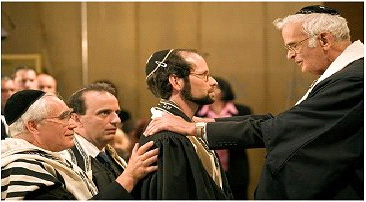 In a milestone event for the resurgent Jewish community of Germany Rabbi Walter Jacob of Pittsburgh, Pennsylvania, a German émigré and the President of the college, presided over the ordination of the first three rabbis to have graduated in Germany since World War II.
In a milestone event for the resurgent Jewish community of Germany Rabbi Walter Jacob of Pittsburgh, Pennsylvania, a German émigré and the President of the college, presided over the ordination of the first three rabbis to have graduated in Germany since World War II.
Baroness Julia Neuberger, a British rabbi and member of the House of Lords, delivered the graduation address while Rabbi Walter Homolka, Principal of Geiger College, joined Rabbi Jacob in conducting the ordination. Greetings were also offered by Rabbi Dr. Alfred Gottschalk, Chancellor Emeritus of Hebrew Union College-Jewish Institute of Religion, in the U.S.A., and also a child survivor of the Holocaust.
The three ordinands include Daniel Alter, who will serve congregations in Delmenhorst and Oldenburg, Germany; Tomáš Kuccera, who will serve Munich's Congregation Beth Shalom as well as the Progressive community in Prague; and Malcolm Matianini who will return to his homeland, South Africa, to serve as a rabbi at Temple Israel in Cape Town. All three candidates completed congregational internships as well as their academic studies. Rabbi Andrew Goldstein of Northwood & Pinner Liberal Synagogue in Middlesex, U.K., commenting on the event in a sermon preached just after returning from the ordination ceremony, stated: "We were witnessing a miracle indeed in which the past glory of German Jewry was being linked to a new future."
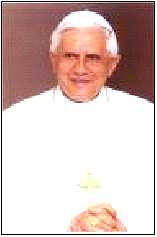 Ecumenism a “Gradual Ascent”: Pope Benedict
Ecumenism a “Gradual Ascent”: Pope Benedict
In a statement marking the 2007 Week of Prayer, Pope Benedict XVI stated in Rome last month that that ecumenism is a slow process, but has refreshing pauses that allow one "to breathe fully the very pure air of full communion."
The Holy Father outlined his analysis of this important issue at a general audience held in Paul VI Hall at the Vatican. His address was dedicated to the Week of Prayer for Christian Unity in January, which he closed with an ecumenical vespers service in the Basilica of St. Paul Outside the Walls. "Ecumenism is a slow process, it is a gradual journey of ascent, as are all journeys of repentance," the Pope said. "However, it is a journey that, after the initial difficulties and in fact in them, presents also great moments of joy, refreshing pauses, and allows one to breathe fully the very pure air of full communion."
"Ecumenism is a slow process, it is a gradual journey of ascent, as are all journeys of repentance" |
Recalling the theme chosen for the 2007 Week of Prayer — "He makes the deaf hear and the mute speak" — the Pontiff added: "We could also repeat these words, which express the wonder of the people who witnessed the healing of the man who could not hear or speak, on seeing the wonderful flowering of the commitment for the re-establishment of Christian unity."
The last 40 years
Benedict XVI added: "On reviewing the journey of the last 40 years, we marvel at how the Lord has awakened us from the lethargy of self-sufficiency and indifference; how he makes us ever more able to 'listen to one another' and not just 'hear ourselves'; how he has loosened our tongue so that the prayer we raise to him has greater force of conviction for the world. "Yes, it is true, the Lord has granted me many graces and, in the light of the Spirit, has illuminated many testimonies.
"They have demonstrated that everything can be attained by prayer, when we are able to obey with trust and humility the divine commandment of love and to adhere to Christ's longing for the unity of all his disciples."
Quoting the Second Vatican Council decree "Unitatis Redintegratio," the Pope also said: "The attainment of union is the concern of the whole Church, faithful and shepherds alike. This concern extends to everyone, according to his talent, whether it is exercised in his daily Christian life or in his theological and historical search."
U.S. Muslim leaders visit Holocaust Museum, reject Holocaust denial
During a visit to the United States Holocaust Memorial Museum in Washington recently, leaders of the U.S. Muslim community dissociated themselves from efforts to deny the Holocaust, such as expressed in the recent conference in Iran. Imam Mohamed Magid of the All Dulles Area Muslim Society declared, "This is the lesson that all humanity has to take from this great tragedy, that many people have lost their lives because of hate, bigotry. And we have to stand together committed to compassion, love, and mercy." He added, "If anyone wants to make Holocaust denial an Islamic cause, we want to say to them: You cannot use our name."
“It is important that the world knows” The Council on American-Islamic Relations and the Muslim The Council on American-Islamic Relations and the Muslim Public Affairs Council were also represented in the delegation. Dr. Akbar Ahmed, an American University professor active in inter-religious dialogue, who asked the museum to hold the ceremony, stated, "It's important that the world knows there are Muslims who don't believe in this [Holocaust denial]." A survivor of the Holocaust, Johanna Neumann, recounted how Albanian Muslims hid her and her family and saved their lives when they fled to that country after the Germans occupied Yugoslavia. She and other survivors joined the visiting Muslim representatives and officials of the Museum in lighting candles in memory of the victims of the Holocaust.
AROUND THE WORLD
Priests arrested in China
Nine priests were arrested in the diocese of Baoding in the northern province of Hebei, China. The northern province of Hebei is the region with the highest number of Catholics (1.5 million), most of them belonging to the underground church. The Chinese government allows religious practice in the country only with recognised personnel and in places registered with the Religious Affairs Office and under the control of the Patriotic Association, whose statute provides for the creation of a national church split from the Holy See. According to AsiaNews, the Patriotic Association has launched a campaign of arrests of bishops, priests and believers from Hebei in a bid to subdue them. The agency reported that at least six underground bishops of Hebei have disappeared after their arrest. Among them is Bishop James Su Zhimin, 73, of Baoding, who was arrested in 1996.
Christianity declining in West but growing in South says Kobia
The head of the World Council of Churches on a visit to India has lamented the decline of Christianity in the West, while also praising rapid growth of the faith in developing countries. "Churches are being sold in Europe and are being converted into bars. It is sad to hear that liquor is being served from pulpits where the word of God used to be preached," WCC general secretary the Rev. Samuel Kobia said in Kottayam in India's southern state of Kerala.
German president wants churches to redouble unity efforts
German President Horst Köhler has called on Christian churches to redouble efforts to promote unity, warning they risk squandering their opportunities by letting differences and disputes drown out the message of their faith. "I too strongly believe in the importance of dialogue between the various Christian denominations. But the engine of ecumenism seems to have stuttered," Köhler told 150 representatives of Europe's main Christian traditions gathered in Wittenberg, where in 1517 Martin Luther set in train the Protestant Reformation.
Bible readings for HIV positive people released in India
A series of biblical texts called "Ronnie's Bible" giving support to those who are HIV positive and also to terminally ill people who may feel they are faced with hopelessness in life, has been released in India. They were made public by the general secretary of the World Council of Churches, the Rev. Samuel Kobia during celebrations for the 50th anniversary of the Bangalore-based Christian Institute for the Study of Religion and Society last month.
Islam challenges Europe view that religion is private, church heads told
The growth of Islam in Europe is challenging deeply-held notions that faith is a private matter which should be banished from public life, a prominent sociologist of religion has told a gathering of European Christian leaders. "We ignore the presence of Islam at our peril," Professor Grace Davie of the University of Exeter in Britain told leaders from Europe's main Christian traditions at a meeting in Wittenberg in Germany last month. "This is a catalyst for a much more profound change in the religious landscape of Europe."
Holy Land bishop urges Palestinians: Use brains, not arms
Holy Land Lutheran Bishop Munib Younan has urged Palestinians to "use brains, sanity, dialogue and non-violence and not arms to deal with differences". Speaking at a conference on 10 February, called by non-governmental organizations and other agencies, Younan encouraged "democratic, non-violent strategies as the only way to achieve Palestinian goals of an end to the 40-year military occupation and the creation of an independent, viable state living side by side with Israel".
Not everybody loves Australian churches: ‘Jesus loves Osama’ signs
Some Australian churches have triggered a debate among Christians and also invoked the criticism of the prime minister by declaring Jesus' love for Osama Bin Laden in signs outside places of worship. The signs are an initiative of Outreach Media, an organisation which provides posters for church billboards around Australia. Churches from Protestant denominations have displayed the sign, including Lutheran, Presbyterian, Church of Christ and Uniting churches.
'Remain vigilant,' says Kobia at Asia's largest Christian gathering
The general secretary of the World Council of Churches has urged young people assembled at Asia's largest Christian gathering to remain on their guard against threats such as the use of religion to justify the propagation of hatred.
"Those who create poverty in the name of investment, those who destroy the environment, those who preach hatred in the name of religion, those who traffic in children and women, they are all trying to punch holes in the boat we are sailing," WCC general secretary the Rev. Samuel Kobia told an estimated 150 000 people gathered at the Maramon Convention, in India's southern state of Kerala.
"You must stop them and remain vigilant," Kobia said in a February speech at the convention, which is organized each year by the Mar Thoma Evangelistic Association. The association is the mission and evangelism wing of the Mar Thoma Syrian Church of Malabar, one of the WCC's member churches in India.
The WCC general secretary was inaugurating the year-long celebrations of the 75th anniversary of the Mar Thoma Youth Association, which has more than 900 branches in India, the Middle East, Africa, North America and Europe.
The week-long convention gathers Christians from throughout India and other places in the world. They gather on the dry bed of the River Pampa between the villages of Maramon and Kozhencherry, in south central Kerala. "This is an experience of a life-time and it will remain in memory for ever," Kobia told the massive crowd, squatting on the sandy river bed within a vast temporary shed called a pandal.



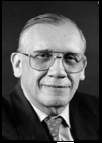 “This then was the first item on the agenda of a special conference organising group which raised the necessary funding from a series of government and private trust sources.
“This then was the first item on the agenda of a special conference organising group which raised the necessary funding from a series of government and private trust sources.